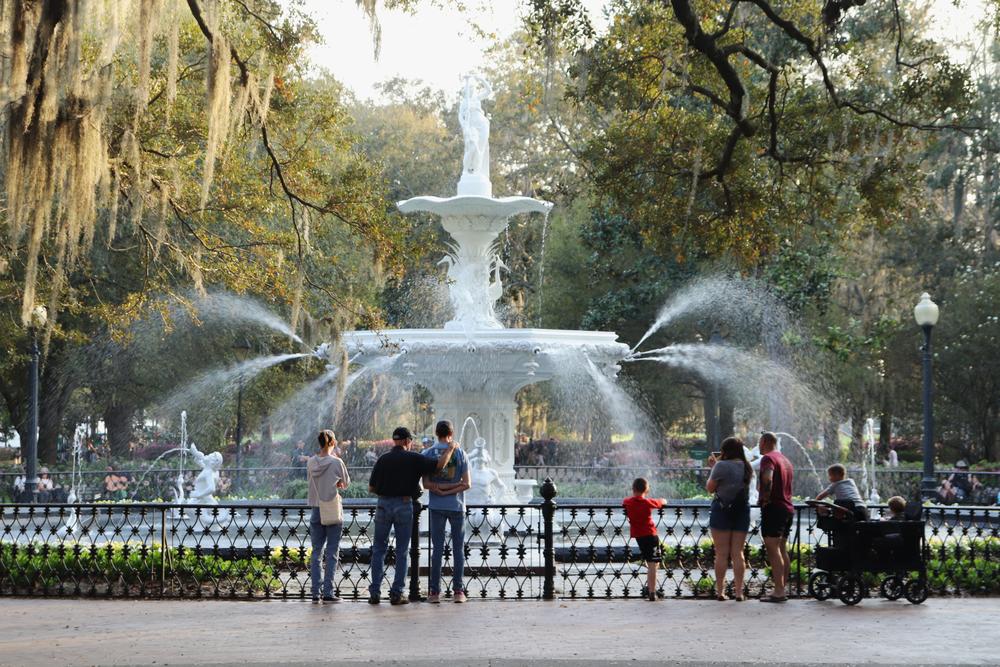
Caption
Visitors stand before the Forsyth Park fountain, one of Savannah's most popular tourist hotspots.
Credit: Benjamin Payne / GPB News
LISTEN: Beginning in September, Savannah's tax on hotels, motels and short-term vacation rentals will rise by 2%. GPB's Benjamin Payne reports.

Visitors stand before the Forsyth Park fountain, one of Savannah's most popular tourist hotspots.
Visitors to the Hostess City of the South can expect to pay more for their lodging later this year, as the Savannah City Council on Thursday approved increasing the city's hotel/motel tax from its current 6% to 8%, effective Sept. 1.
The 6-3 vote marked the first time since 1995 that the tourism-heavy community raised its rate, as years of disagreements between local politicians, business leaders and state lawmakers had kept the tax frozen at its current level.
“Right now, 90% of the cities in Georgia pay a higher hotel/motel tax than we do,” Alderman Nick Palumbo said shortly before the vote. “Right now, we have the ability to fix an ailing and decaying River Street that has had numerous emergency repairs, that — up until this moment — the people of this city have had to pay [for]. And now, the visitors of this city will have to pay for it.”
Palumbo was joined in voting for the increase by four other councilmembers — including Alderman Detric Leggett, who represents the hotel-heavy Downtown Historic District — as well as Mayor Van Johnson.
“I think that the prevailing thought around our community is that tourism should pay a larger share of community improvements and community enhancements in our city,” Johnson said, adding that Chatham County's entire legislative delegation voted in favor of a recently passed state law which cleared the way for the tax rate increase. “We are a tourist city. We enjoy being a tourist city. Tourism — whether one likes it or not — pays a lot of our bills.”
The rate increase creates a new pool of capital funding for “Tourism Product Development,” which a corresponding resolution stipulates will be prioritized in the following order:
Even with these new Tourism Product Development projects, the largest share of hotel/motel tax revenue (37.5%) will continue to go to the city's general fund, which is largely unrestricted in how it can be spent.
Three councilmembers voted against raising the hotel/motel tax rate increase — including the body's two at-large members, Alderwoman Kesha Gibson-Carter and Alderwoman Alicia Miller Blakely — with criticism that the tax revenue should fund not merely tourism-related projects, but also social programs for hospitality workers, such as assistance with housing, transportation and child care.
“The tourism industry is built on the backs of poor, marginalized, working-class people — and that's of all hues,” Gibson-Carter said. “The wages are extremely low. And, while we cannot do anything about wages because of state mandates, we as elected officials exercise our influence in a number of ways when it comes to helping people. And so, if the hospitality industry, our hoteliers, are collecting this additional resource, why isn't there a conversation of some sort in terms of how we can figure out how they can increase the wages, or increase earning potential, educational opportunities, growth potential of these workers?”
Just as with the current hotel/motel tax, the new tax will also be levied on short-term vacation rentals, such as lodging through Airbnb.